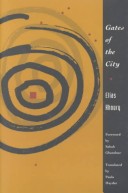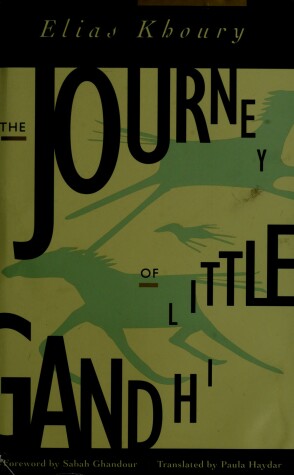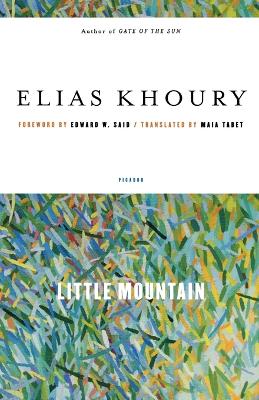Emergent Literatures S.
2 primary works • 3 total works
Book 12
Elias Khoury is one of the most distinguished writers and intellectuals in the contemporary Arab world. His contributions to Arab culture are substantial and enormously diverse, including novels, literary criticism, and cultural critique. His distinction as a writer and critic in the Arab world, already recognized in France where many of his works have been published in French translation, is currently finding recognition in the United States as well. "Gates of the city", Khoury's first novel, mixes the genres of the epic and the lyric to mediate on the pains and ravages of civil war. Khoury also provocatively draws on the traditions and themes of Arabic storytelling as articulated in "The thousand and one nights". A man wanders the labyrinths of the city of Beirut (unidentified in the novel) out of the past and through the present into an uncertain future, a trajectory much like the city itself, the space of contested cultural claims as yet unresolved. The man must find his way through the city's passages, out of his own past, through the present, and into a still anticipated future.
Khoury weaves this narrative around the problems of memory and forgetting, beautifully articulating the linguistic and cultural struggles that have exploded the city for the past fifteen years. In his fluid and lyrical style, meticulously captured by translator Paula Haydar, Khoury reveals his literary genius one that will play a pivotal role in bridging the distances between Arab and western writers and critics. Elias Khoury is a lecturer at the American University at Beirut and the cultural editor of al-Safir . He has also taught at Columbia University. Khoury has published book-length works in various genres, including novels, critical essays, and short stories. He is the author of, among other titles, Little mountain (English translation, Minnesota, 1989), and The travels of little Gandhi (English translation forthcoming from Minnesota). This book is intended for comparative literature.
Khoury weaves this narrative around the problems of memory and forgetting, beautifully articulating the linguistic and cultural struggles that have exploded the city for the past fifteen years. In his fluid and lyrical style, meticulously captured by translator Paula Haydar, Khoury reveals his literary genius one that will play a pivotal role in bridging the distances between Arab and western writers and critics. Elias Khoury is a lecturer at the American University at Beirut and the cultural editor of al-Safir . He has also taught at Columbia University. Khoury has published book-length works in various genres, including novels, critical essays, and short stories. He is the author of, among other titles, Little mountain (English translation, Minnesota, 1989), and The travels of little Gandhi (English translation forthcoming from Minnesota). This book is intended for comparative literature.
Book 15
"He was born in Mashta Hasan, ran away from his father, who took him to his grandfather's cave, worked in the Miftah bakery in Tripoli, moved to Beirut where he worked in the Abu Ayoun's restaurant, and then worked as a shoe shiner. He got married and had two children, Husn and Suad. Husn was a barber, and Suad was sick. He loved life and loved the flavour of it. Alice told him, and the Reverend Amin befriended him, and Davis turned him into a restaurant owner, and the dog died, and Gandhi grieved over the dog more than he grieved for his own father." Such was the journey of Abd al-Karim (Husn al-Ahmadi al-Mughayri), nicknamed Little Gandhi. As told by Alice to the one who tells the story here, it is, however, not so simple. In the hands of Elias Khoury, the tale of this humble shoe shiner living and working in Beirut during the recent Lebanese-Israeli war is also the story of a city, perhaps a world, coming apart at the seams.
First published in Beirut, where it has gone through several printings, "The journey of Little Gandhi" is representative of Khoury's distinctive style and narrative technique as well as his consistent exploration of Beirut as the locus of competing historical and political forces. As such, the book also reflects the author's significant, ongoing contribution to modern Arab literature. Elias Khoury is the editor of al-Nahar's "literary supplement". He has taught at the American University of Beirut and at Columbia University. Paula Haydar is a freelance translator living in Fayettesville, Arkansas.
First published in Beirut, where it has gone through several printings, "The journey of Little Gandhi" is representative of Khoury's distinctive style and narrative technique as well as his consistent exploration of Beirut as the locus of competing historical and political forces. As such, the book also reflects the author's significant, ongoing contribution to modern Arab literature. Elias Khoury is the editor of al-Nahar's "literary supplement". He has taught at the American University of Beirut and at Columbia University. Paula Haydar is a freelance translator living in Fayettesville, Arkansas.


